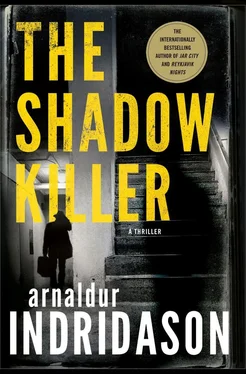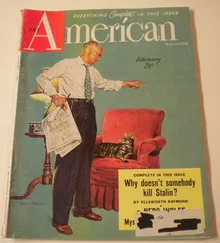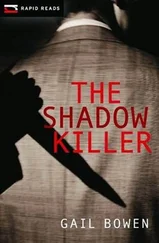‘What?’
Thorson recalled Graham saying that it was their affair and sooner or later they would have to step in and take over the investigation. In the meantime, he had ordered Thorson to provide a daily report on their progress.
‘Nothing,’ said Thorson, ‘I just wondered if you might need more help from us.’
‘But this is an Icelandic matter,’ said Flóvent. ‘You’re involved because the murder weapon is almost certainly a military one and we need easy access to the occupation force if the trail leads us to a soldier. If we need any further assistance from your people, I’ll let you know.’
‘Yes, of course, I just wanted to mention the Churchill angle.’
‘Thank you. But I don’t believe there’s any cause for concern. Nothing like that would ever happen here. Not in Iceland.’
Thorson was taken aback by his assertion. Two years ago Flóvent could have said something like that without a second thought, but a great deal had changed since then. Iceland was no longer a remote island, cut off from the rest of the world. The country had been dragged into the maelstrom of world events and plenty was happening here now that would have been inconceivable before. Had Flóvent not yet woken up to this new reality or had he temporarily forgotten it? There were no longer any grounds for such misplaced optimism. Flóvent was deceiving himself. It wasn’t the first time Thorson had come up against this mindset. Perhaps it was the Icelanders’ innocence that had been the first victim when the British invasion force marched into town on 10 May last year. Thorson remembered a buddy of his asking if he’d be interested in settling in Iceland after the war. Thorson had used his leave to go hiking in the mountains in the mild summer weather. He’d come back waxing lyrical about the beauty of the landscape and the silence that had enveloped him as he slept out under the midnight sun. Thorson admitted he hadn’t given it any thought, and then his buddy had made a remark that stayed with him: ‘I guess you’d have to learn to think like an Icelander if you wanted to live here.’
‘You shouldn’t underestimate the seriousness of the situation,’ he said to Flóvent now. ‘I think we should still bear the possibility in mind — maybe try to get confirmation of whether he’s actually coming. If measures need to be taken. You see, Graham and co., they don’t trust...’
‘Who don’t they trust?’
‘I shouldn’t have opened my big mouth...’
Thorson hesitated again. He hadn’t meant to say any more, but he wasn’t happy with the dilemma he found himself in. On the one hand, he was accountable to his commanding officers and wanted to fulfil the task he had been entrusted with; he didn’t want to work against the interests of the occupation force or his comrades in arms. On the other hand, he felt a lot of sympathy for the Icelanders. His parents had taught him to consider them his own people, however distant. He had heard his fellow soldiers poking fun at the locals, sneering at them, and had tried to make up for their behaviour. It hurt him to hear people deriding the country and its inhabitants. And now he felt he was being forced to choose sides, forced into a thankless position. He hated not being able to speak honestly to Flóvent.
‘What’s on your mind?’ Flóvent asked, picking up on his hesitation. ‘Is everything all right? Who don’t they trust? What do they want? Is there something you can’t share with me?’
‘They want to take over the case,’ Thorson said at last, with a sigh. ‘And sooner or later they’ll do it. They have no faith in the Icelandic police. They don’t trust them — you, the Icelanders — to do it right.’
Flóvent gave Thorson a searching look. ‘Because of the visit?’ he asked at last.
‘No, at least I don’t think so. Well, that didn’t actually occur to me. They believe the killer has to be a member of the occupation force because of the gun. They may have even started their own inquiry.’
‘Are you aware that they have?’
‘No.’
‘Well, thank you for telling me. You didn’t have to.’
‘I don’t want to be a... some kind of a sneak. To do anything underhand. I felt it was right to come clean with you. That way at least everything’s straight between us.’
‘Not many men in your position would have behaved as honourably,’ said Flóvent.
‘I’m pretty sick of their attitude to the locals. And I don’t want to get caught up in some kind of double game...’
He was going to phrase it differently but could think of no other way of saying it. If anyone was playing a double game, it was him.
But Thorson said nothing about that either.
They parted company shortly afterwards, and Flóvent drove back to Fríkirkjuvegur prior to heading home. There was a message waiting for him at the office: a policeman from Pósthússtræti had been asking to speak to him in connection with the Felix Lunden case. He put through a call to the station but learnt that the officer in question had gone off duty. After that, he rang the Reykjavík commissioner’s right-hand man, an old acquaintance from his days with the regular police, to sound him out about Churchill’s visit. His contact, it turned out, was completely in the dark. Astonished by the suggestion, he immediately wanted to know where Flóvent had picked it up. Flóvent merely said he’d heard it on the grapevine. He was reluctant to mention Thorson in case he got the young man into trouble.
Until the rumour had been substantiated, he felt it was premature to link Felix Lunden’s disappearance to a possible visit. So far he had not one shred of evidence to suggest that Felix was involved in a plot connected to Churchill or that he was a German assassin. Even supposing the suitcase did belong to him, and the cyanide capsule too, that wasn’t sufficient grounds for such a conclusion. Admittedly the pill was an indication that there was more to Felix Lunden than met the eye and that he might be working for the Germans, but it revealed nothing about an actual Nazi plot in Iceland.
Flóvent’s acquaintance, Arnfinnur, a man somewhat older than him, said he would make enquiries and get back to him shortly. Then he asked if Flóvent was making any headway with the murder investigation and whether the occupation force was playing ball. Flóvent said it was progressing, slowly, and complained, not for the first time, about a lack of manpower. The Criminal Investigation Department needed more men. Up to now his requests had fallen on deaf ears, but he thought the murder at Felix’s flat might prompt his superiors to remedy the situation. Arnfinnur said he would see what he could do but hinted that since the military police were willing to assist, and the Icelandic force was desperately understaffed at what was after all a difficult time, Flóvent would probably have to make the best of things. Flóvent had heard that one before.
He had no sooner replaced the receiver after his conversation with Arnfinnur than the phone rang. It was his father, wanting to know if he’d be home soon. Flóvent told him not to wait up, but knew it wouldn’t do any good. His father, who worked on the docks, seldom retired for the night until Flóvent came home. He kept supper warm for his son when Flóvent was held up at work, and made sure he never went to bed hungry. They usually spent their evenings chatting or companionably listening to the wireless, and Flóvent knew that his father treasured these moments. He was a family man who had lost half his family in one fell swoop when his wife and daughter died of the Spanish flu. He and Flóvent bore their sorrow in silence. He had never gone out looking for another woman after his wife died. He was a member of the last generation of Icelanders to experience true hardship, having lived through war, depression and epidemic — all without uttering a word of complaint.
Читать дальше












